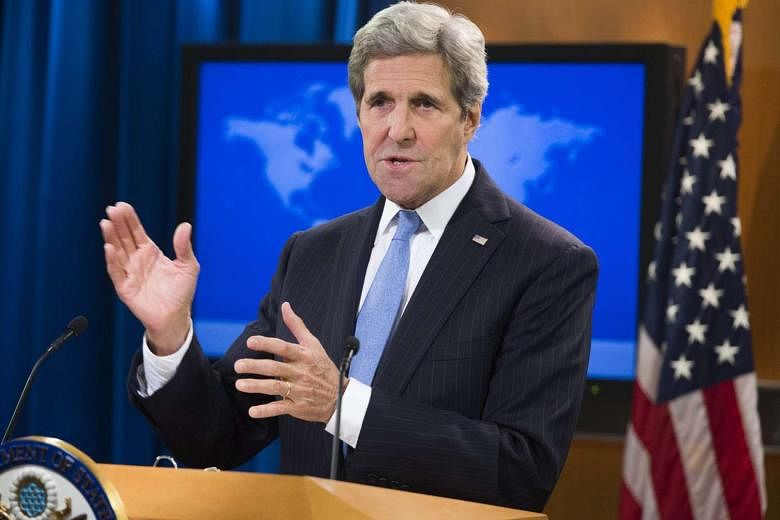WASHINGTON • In a striking public rebuke of China, US Secretary of State John Kerry has warned Beijing that its effort to rein in North Korea had been a failure and something had to change in its handling of the isolated country it has supported for the past six decades.
"China had a particular approach that it wanted to make, and we agreed and respected to give them space to be able to implement that," Mr Kerry said on Thursday, a day after North Korea's latest nuclear test, following a phone call with his Chinese counterpart Wang Yi.
"Today, in my conversation with the Chinese, I made it clear: That has not worked, and we cannot continue business as usual."
China, the North's main ally, said on Wednesday it "firmly opposes" the test, which drew international condemnation. It added that it had not been informed beforehand.
Yesterday, the Foreign Ministry insisted that Beijing did not hold the key to resolving the North Korean nuclear issue, and that it involved efforts on the part of all parties.
"Achieving denuclearisation of the Korean Peninsula and safeguarding the peninsula's peace and stability accords with all parties' mutual interests is the responsibility of all parties and requires all parties to put forth efforts," ministry spokesman Hua Chunying told a news briefing. She urged Pyongyang to stick to its denuclearisation pledges and avoid action that worsens the situation.
Mr Kerry did not specify the sanctions he wanted China to agree to, but two administration officials said the United States was drafting a proposed resolution for the United Nations Security Council's approval to impose sanctions on North Korean trade and finance, including a partial ban on letting North Korean ships enter ports around the world.
A second set of sanctions under consideration is to cut off North Korean banking ties, similar to curbs placed on Iran in the successful effort to drive it to talks over its nuclear programme.
After the North's past nuclear tests, China, a Security Council member, had agreed only to council resolutions banning arms shipments to the North and imposed sanctions on specific firms and individuals linked to the nuclear programme.
Although administration officials cast the proposed new sanctions as severe, enforcement had been poor in the past. "What we really want to see is better teeth in the enforcement," a senior US official said, declining to be named.
The most effective step against North Korea, most experts believe, would be the one that the Chinese most oppose: A restriction or halt of oil exports to the North, which is highly dependent on oil that runs through pipelines from China.
"We just think it would be a nonstarter with the Chinese," said a US official, adding that it would be counter-productive if the inclusion of an oil ban led China to veto the entire resolution. China's fear is that without oil, the North Korean government could collapse, putting South Korea - and its US ally - on its border.
The US Pacific Command met on Thursday to take up other, if largely symbolic steps. One is an overflight of the North-South border with a nuclear-capable bomber. Such flights were sent up in 2013, after North Korea's third nuclear test.
"The North Koreans noticed," Mr James Miller, undersecretary of defence for policy, said on Thursday. "And the rest of the world saw that they noticed."
But clearly, the effect wore off, given the North's decision to hold a fourth test.
South Korean and US officials said there was renewed talk of deploying an advanced missile defence system, called the Terminal High-Altitude Area Defence, in South Korea. The US has been pressing for this for some time, but the South has resisted largely because of opposition from China, its leading trade partner.
NEW YORK TIMES, REUTERS

